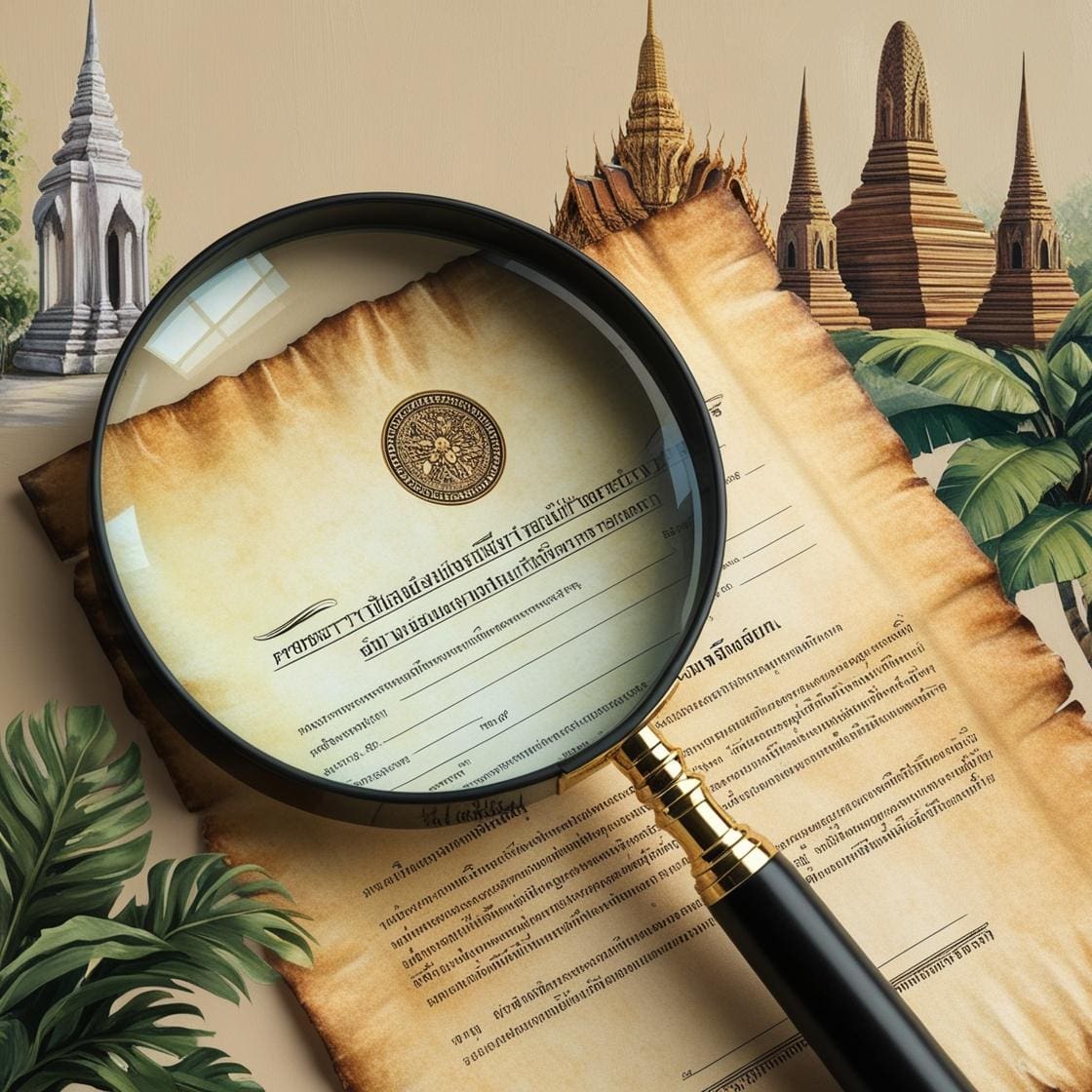Investing in real estate can be a rewarding venture, especially in a dynamic market like Thailand. However, conducting thorough due diligence is crucial to ensure your investment is sound and to avoid potential pitfalls. This article outlines essential steps for how to conduct property due diligence in Thailand, including inspections, legal checks, and market analysis, supplemented by facts and statistics to enhance your understanding.
Understanding Property Due Diligence
Property due diligence is a comprehensive process that involves investigating a property’s legal, financial, and physical aspects before making a purchase. This process helps identify potential risks and ensures that the investment aligns with your goals. In Thailand, where the real estate market can be complex, thorough due diligence is especially important for foreign buyers.
The Thai Real Estate Market: An Overview
As of 2023, Thailand’s real estate market remains a significant draw for both local and international investors. Foreign ownership in Thai property has consistently increased, accounting for nearly 20% of total property sales in popular areas like Bangkok, Phuket, and Pattaya. With average property prices in Bangkok hovering around THB 70,000 to THB 150,000 per square meter (approximately USD 2,100 to USD 4,500), it’s crucial to approach investments with caution and thorough research.
Step-by-Step Guide on How to Conduct Property Due Diligence in Thailand
1. Research the Market
Before diving into specific properties, it’s essential to understand the overall market conditions in the area where you plan to invest. This involves:
- Analyzing Market Trends: Look at recent sales data, average property prices, and rental yields in the area. In Bangkok, the average rental yield for condos is around 5% to 6%, while in tourist hotspots like Phuket, it can reach up to 8%. According to the Property Report, rental yields in Pattaya can be as high as 10%, making it a lucrative market for investors.
- Identifying Growth Areas: Research emerging neighborhoods that may experience future appreciation. Areas undergoing infrastructure improvements, such as the new MRT Orange Line, which is expected to enhance connectivity in Bangkok, often present excellent investment opportunities.
2. Verify Property Ownership
Before proceeding with any purchase, confirm the ownership of the property. In Thailand, ownership can be complex, particularly for foreign buyers. Steps include:
- Checking the Title Deed: Obtain a copy of the title deed (Chanote) from the seller and verify its authenticity. Ensure that the property is free from encumbrances, such as mortgages or liens. The Thai Land Department provides online services for verifying title deeds, which can streamline this process.
- Confirming Ownership Details: Verify that the seller is the rightful owner and that their name matches the name on the title deed. This is crucial to avoid disputes later on. A survey by the Thailand Board of Investment found that 30% of foreign buyers reported ownership disputes as a major concern, highlighting the importance of this step.
3. Conduct Legal Checks
Understanding the legal framework governing real estate in Thailand is essential, especially for foreign buyers. Key legal checks include:
- Reviewing Sale Agreements: Have a lawyer review the sale agreement to ensure that it includes all necessary terms, conditions, and protections. This agreement should outline payment schedules, handover dates, and dispute resolution mechanisms. A well-structured agreement can protect you from potential legal issues down the line.
- Investigating Developer Credibility: If purchasing from a developer, research their track record. Check for any previous projects and their completion rates. According to the Thailand Real Estate Association, projects by reputable developers typically have completion rates of over 90%, whereas lesser-known developers may face delays or cancellations.
4. Property Inspections
A physical inspection of the property is vital to identify any issues that could affect its value or your enjoyment of it. Key areas to inspect include:
- Structural Integrity: Look for signs of structural damage, such as cracks in walls, water leaks, or mold. It may be worthwhile to hire a professional inspector to conduct a thorough evaluation. Reports indicate that 15% of newly constructed properties in Thailand have some form of defect upon completion.
- Amenities and Facilities: If you’re purchasing a condo or apartment, check the condition of shared amenities, such as pools, gyms, and parking areas. Assess whether they are well-maintained and if the monthly fees reflect the level of service provided. According to a recent survey, 60% of buyers consider the quality of amenities a major factor in their purchase decision.
5. Assess Financial Implications
Understanding the financial aspects of your investment is crucial for long-term success. Consider the following:
- Total Cost of Ownership: Calculate all costs associated with the purchase, including transfer fees, taxes (which can be around 2% to 3% of the property value), and ongoing maintenance fees. For example, property transfer fees in Thailand are typically 2%, while the income tax on rental income is 15% for foreigners.
- Financing Options: Explore available financing options, including local bank mortgages. While foreigners can secure mortgages in Thailand, they typically require a larger down payment (usually around 30% to 50% of the property value). In 2023, foreign mortgage approvals in Thailand have been rising, with banks becoming more accommodating to foreign buyers, particularly in prime locations.
6. Understand Local Laws and Regulations
Familiarize yourself with local laws and regulations affecting property ownership, particularly for foreign buyers. In Thailand, foreigners can own condos outright, but land ownership is restricted. Consider:
- Foreign Ownership Limits: Foreigners can own up to 49% of a condo building’s total area. Make sure that the unit you’re interested in is within this limit. The remaining 51% must be owned by Thai nationals or Thai companies.
- Leasehold Agreements: If purchasing land, be aware that foreigners can only acquire it through leasehold agreements, typically for 30 years, with options for renewal. This structure can be a viable alternative for investors looking to develop properties in Thailand.
7. Consult with Professionals
Engaging with professionals who understand the Thai property market can significantly enhance your due diligence process. Key professionals to consider include:
- Real Estate Agents: A reputable local agent can provide insights into market trends, property values, and negotiation strategies. According to the Real Estate Intelligence Center, utilizing a professional agent can increase the likelihood of a successful transaction by 40%.
- Lawyers: Hiring a lawyer who specializes in Thai property law can help you navigate legal complexities and protect your interests. Legal fees typically range from 1% to 2% of the property value.
- Property Inspectors: Professional inspectors can identify potential issues that may not be apparent during a casual walk-through. Investing in a thorough inspection could save you from costly repairs later.
Conclusion
Conducting thorough property due diligence in Thailand is essential for making informed investment decisions and mitigating risks. By following the steps outlined in this guide and leveraging the accompanying facts and statistics, you can ensure that your investment is sound and aligns with your financial goals. Whether you are a first-time buyer or an experienced investor, taking the time to conduct proper due diligence will help you navigate the complexities of the Thai real estate market successfully.



